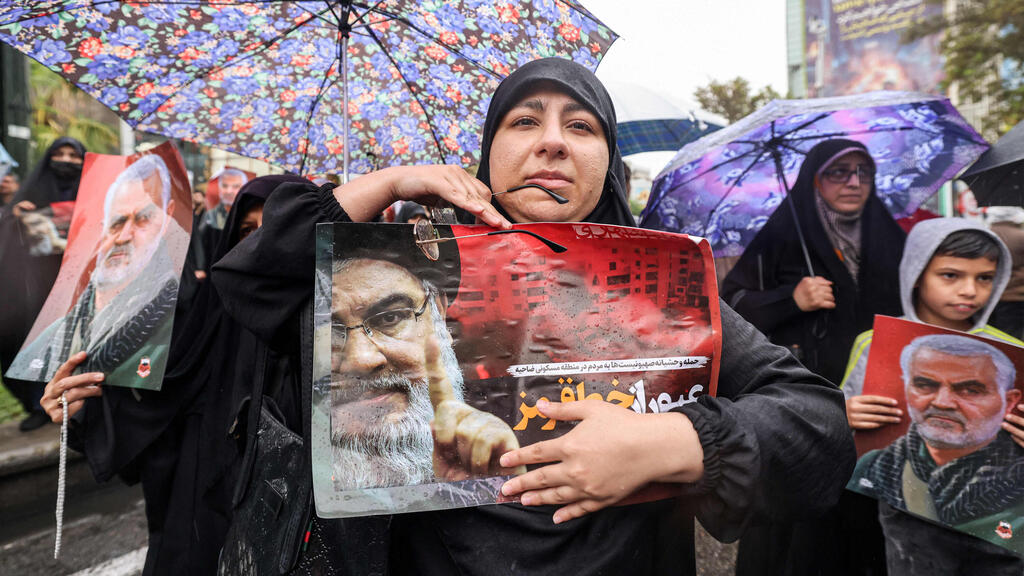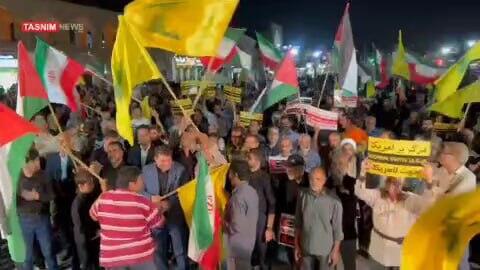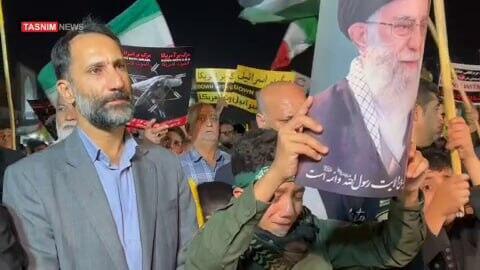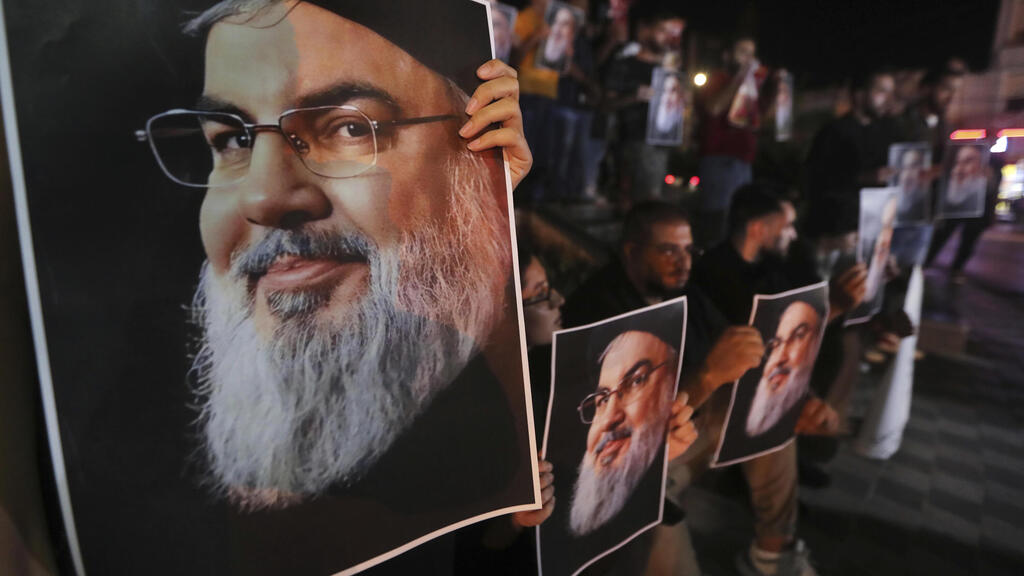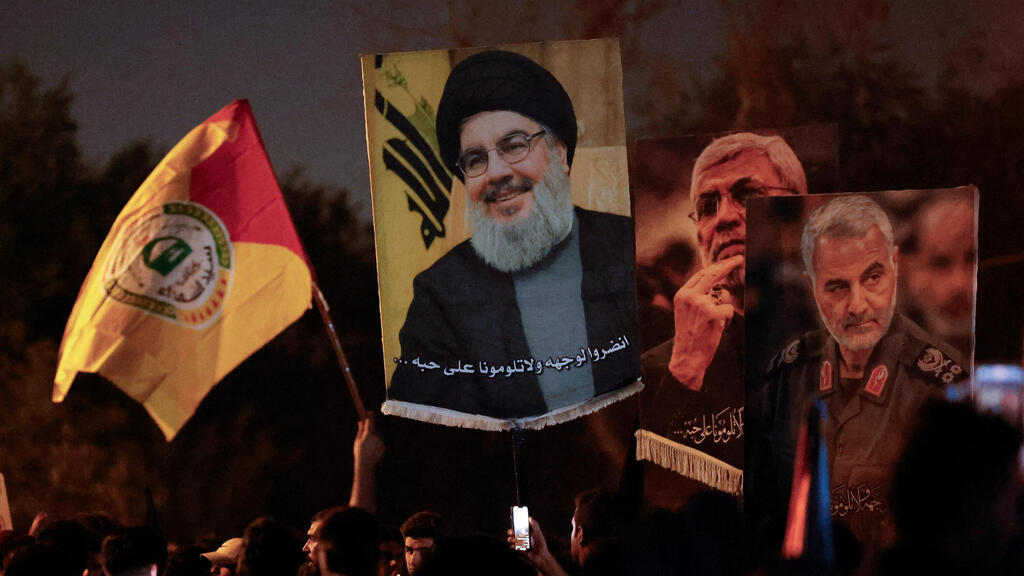Getting your Trinity Audio player ready...
The Shiite axis lost one of its most prominent leaders, and the announcement of the assassination of Hezbollah Secretary General Hassan Nasrallah stunned many.
A news anchor on the Lebanese Al-Mayadeen network, which is affiliated with Hezbollah, reported Saturday afternoon in a voice choked with tears that the leader of the terrorist organization had been assassinated in Beirut.
Reactions to assassination of Hassan Nasrallah
According to a report on the Qatari Al-Araby TV channel, Hezbollah supporters in Lebanon felt deep sadness and shock when they learned of Nasrallah's assassination. Mohammed Shabaro, an Al-Araby network journalist, reported that hundreds of Lebanese citizens spontaneously went out Saturday day for protest marches in the streets of Beirut after hearing the news. He reported that he also witnessed several of those in the street crying and suffering emotional breakdowns and claimed that these reactions were not limited to Hezbollah supporters, but also included other sectors of the Lebanese public.
"We are talking about a large-scale security and political event that will change many things in Lebanon," the reporter said.
The Saudi newspaper Asharq Al-Awsat also described the feeling of confusion on the Lebanese street after the assassination of Nasrallah. According to the report, people who left their homes were waiting for an explanation about what was going to happen next. One of the residents was quoted as saying: "A big loss... we will wait for a response." A young man in his 20s asked: "Who will lead the battle now? How will we face our fate without him?"
While the supporters of the terrorist organization were still in shock, in the city of Tripoli in Lebanon they actually celebrated the death of Nasrallah.
7 View gallery


An Iraqi demonstrator kisses a picture of Nasrallah after the assassination
(Photo: Essam al-Sudani/Reuters)
Videos of Lebanese and Syrians sharing sweets and shooting in the air as a sign of joy were circulated on the networks. Also from Idlib in Syria, which is under the control of the Syrian opposition, similar scenes of celebrations spread since Nasrallah has many enemies in Syria. Many Syrians remember the atrocities committed by his men when they were sent to assist Syrian President Bashar Assad in the country's civil war.
In recent weeks, many Syrians, mainly Sunnis, celebrated the vulnerability of Hezbollah, from the attacks of explosive pagers and walkie-talkies to the assassination of the organization's leader. They handed out sweets in the streets and posted videos explaining why they hate the terrorist organization so much.
The Syrian regime, however, holds a different position. The Syrian Foreign Ministry issued an official condemnation of the assassination on Saturday. "Lebanon today lost the Secretary General of Hezbollah, Hassan Nasrallah, in a cruel and cowardly Israeli attack, which targeted a residential area in the Dahieh area of Beirut, with devastating bombs that caused his death along with a large number of innocent civilians," it said in a statement. The statement added that Syria "lays the full responsibility on Israel of the serious consequences of the criminal act."
In the hours after the assassination was officially confirmed, first by the IDF spokesman and later by the terrorist organization Hezbollah, condemnations began to appear from the countries of the Shiite axis. Iraq was among the first countries to announce three official days of mourning. Iraq's Prime Minister Muhammad Shia al-Sudani said in a statement that the assassination of Nasrallah is "a crime that confirms that Israel has crossed all the red lines."
7 View gallery


Protests in support of the Palestinians in Pakistan, after the assassination of Hassan Nasrallah
(Photo: Arif Ali/ AFP)
In Iran, after the official authorities in the country categorically denied that Nasrallah was killed, with the the official confirmations the condemnations and chants against Israel began to emerge. The spokesman for Iran's Foreign Ministry, Nasser Kanaani, said that "Nasrallah's path will continue and achieve the goal - the liberation of Jerusalem."
Iran's official Tasnim agency posted videos of demonstrations by Iranians against the assassination of Nasrallah. The agency added next to one of the videos that the protesters expressed their willingness to support and help Hezbollah and the residents of the Gaza Strip. The videos also show signs promising violence against Israel. Iranian Foreign Minister Abbas Araghchi announced Saturday night that Iran is determined to protect its security and confront Israel over its actions.
The Houthis in Yemen also announced three days of mourning on Saturday. Pictures of Nasrallah and memorial videos were distributed on the group's social media channels. Abd al-Malik Badr al-Din al-Houthi, the leader of the Houthis in Yemen, spoke Saturday night, and condemned the attack saying: "No matter how great the casualties, it increases our motivation toward escalation. His (Nasrallah's) martyrdom is a loss for the entire Islamic nation. We confirm that the fronts of support, the axis of jihad and the flag of Islam will remain and rise higher."







